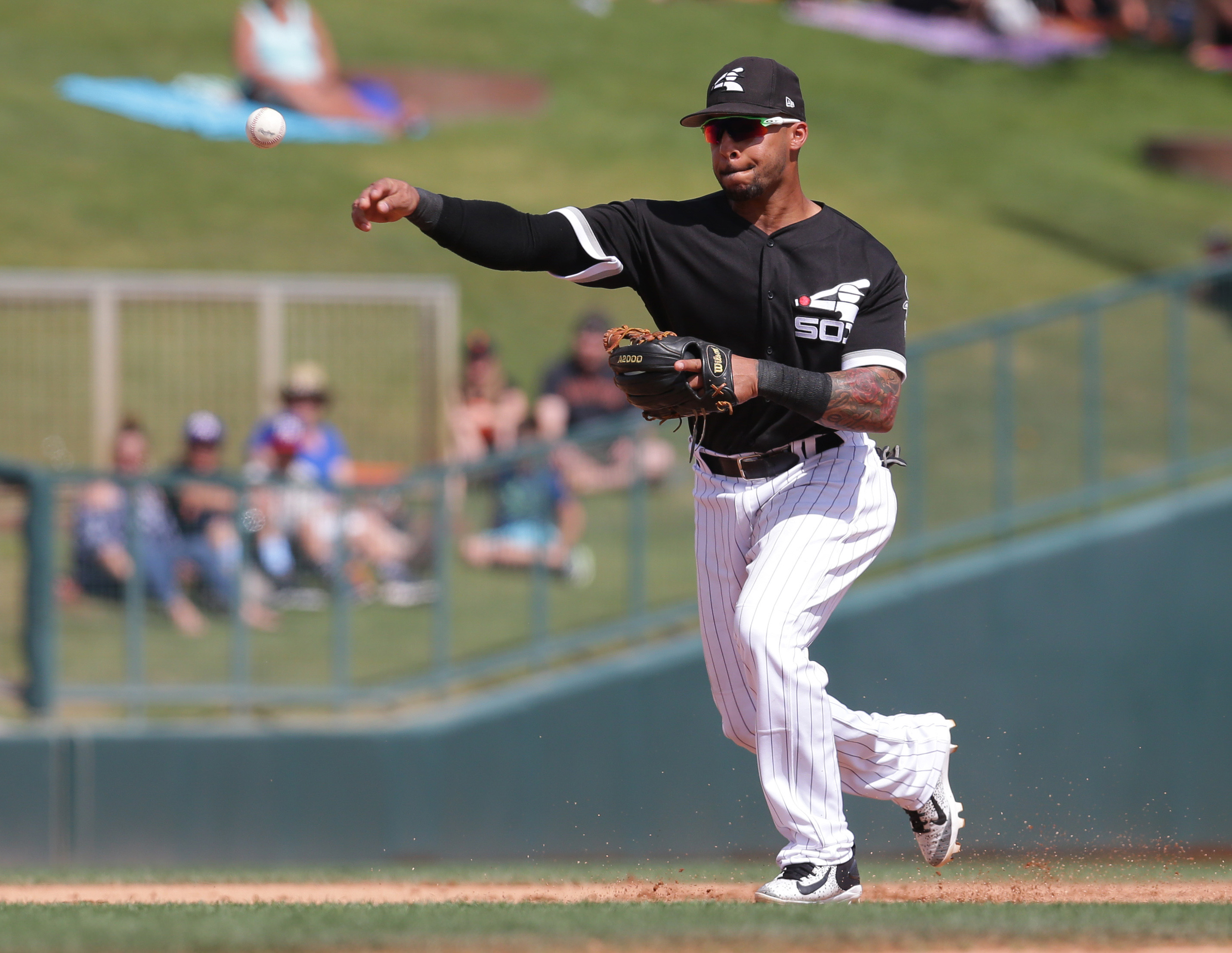One of the unique aspects of this White Sox rebuild, as we’ve reiterated on a number of occasions, is that most of the prospects acquired during the winter were considered close to ready to contribute at the major league level.
In fact, Yoan Moncada, Lucas Giolito, and Reynaldo Lopez all saw time in the majors a season ago, with the Boston Red Sox and Washington Nationals, respectively.
But what they don’t tell you when you purchase a ready-made prospect is that each one comes with a clock. This isn’t the clock you probably think I’m talking about — the service time clock. No, this is like the New Year’s Eve clock in Times Square, except it has an unidentifiable amount of time on it, and often ebbs and flows based on their performance in a myriad of areas during the minor league season.
These clocks are stored deep in Rick Hahn’s desk drawer, and when they hit zero an alarm goes off, and that’s how the White Sox know when to promote players to the major league roster.
For years, these clocks have seemed to malfunction — at least the ones that kept track of position players. They’d go off when a player was still flawed, and he’d show up in a fog, not knowing why he’s up already, desperately trying to hit the snooze button while Justin Verlander or Phil Hughes or Bruce freaking Chen blew pitches past him.
In most cases, those organizational malfunctions proved fatal in the baseball sense. These players were never the same. Maybe some were never going to make it, and the clock was pointless. But others … who knows? That stupid, busted clock may have ruined any chance of them being competent major league players.
This year, the White Sox brought in a horologist, and the clock issue that has plagued them for more than a decade seems, hopefully, finally, to be in their past.
Look, White Sox senior director of baseball operations Dan Fabian said so himself:
“The players will tell us when they’re ready,” Fabian said. “We’re not going to hurry guys. … Part of this process is we can take a step back and not have to hurry guys. When Moncada comes up, it will be because we feel Moncada is ready.”
Hahn said something similar:
“No guy is going to get to Chicago until we feel they’re ready to have success at the big-league level, that they’re ready for that finishing element of their development that happens at the big-league level,” Hahn said last week at the Winter Meetings. “No one’s going to be promoted any time in the foreseeable future simply because there’s a need at their position.”
If you haven’t figured it out by now, this ridiculous, prolonged analogy is about the aforementioned Moncada and the 9-for-23 start he’s gotten off to at Triple-A Charlotte.
Every year there’s a player or two or three who stir up the “service time” conversation, which, as simply as I can put it, is where teams will occasionally wait to promote seemingly major league ready players until a date passes that ensures they’re able to retain that player’s services an extra year before they become a free agent.
It’s entirely possible that, despite what they say, Moncada’s service time is on the forefront of the minds of White Sox brass. It’s possible they don’t give a single damn and are going to call him up when he’s ready, whether it be tomorrow or five months from now. Most likely, it’s somewhere in the middle.
The ethics of teams playing the service time game are for another conversation, but for the sake of the White Sox on the field and their future potential for success, erring on the side of caution would be and is a welcomed development.
Moncada is a top-notch prospect off to a hot start at Triple-A, but two facts remain: He has contact issues and he’s not a finished product defensively. If we’re doing the small sample size analysis, of which we’ve all been guilty of during his hot streak, of the 14 times he’s come to the plate and failed to reach base, eight were via the strikeout. In all, he’s been viewed as a success over the course of his 23 Triple-A at-bats, just as he struggled in his 20 major-league plate appearances just seven months ago. Including this year, he has 47 plate appearances above Double-A in his entire professional career.
Nobody has ever said a prospect was ruined because he spent too much time in the minor leagues.
There’s no such thing as a sure-thing top prospect, but Moncada is as close to one as the White Sox have maybe ever had. For the first time in recent memory, they seem to have a pretty good idea of when the alarm clock is going to go off on a position prospect, and given his importance to the future of this team, they may wind it backward a couple more times yet before it finally hits zero.
The wait will be frustrating for those eager to catch a glimpse of a potential bright spot during an otherwise bleak period in team history, but if they continue to show patience, caution, malfeasance, or whatever you want to call it, he should be worth the wait.
Lead Photo Credit: Rick Scuteri-USA TODAY Sports
